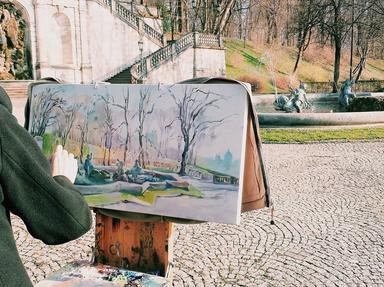Quiz Answer Key and Fun Facts
1. The Card Players (1895)
2. The Bathers (1905)
3. Still Life: Vase with Fourteen Sunflowers (1888)
4. A Wheatfield with Cypresses (1889)
5. The Starry Night (1889)
6. Woman with a Flower (1891)
7. Tahitian Women on the Beach (1891)
8. The Siesta (1894)
9. Bathers at Asnières (1884)
10. A Sunday Afternoon on the Island of La Grande Jatte (1886)
Source: Author
stedman
This quiz was reviewed by FunTrivia editor
looney_tunes before going online.
Any errors found in FunTrivia content are routinely corrected through our feedback system.

